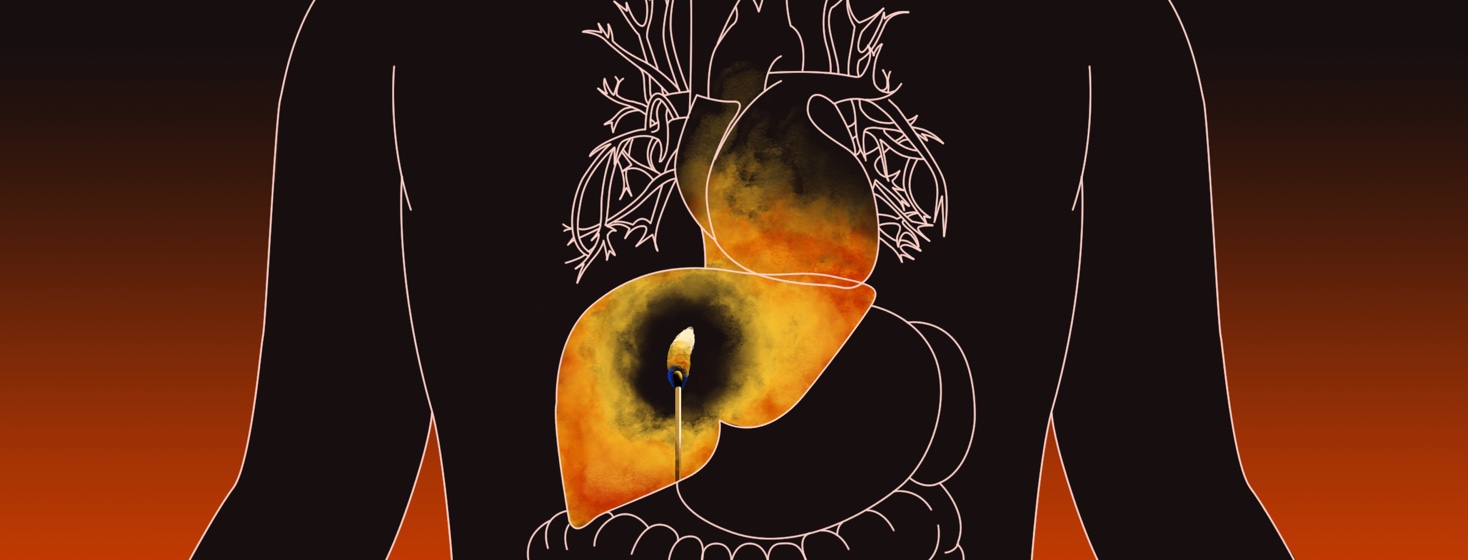Hepatitis C and Cardiovascular Disease
The hepatitis C virus can cause a firestorm of extrahepatic conditions such as insulin resistance, diabetes, hepatic steatosis, cryoglobulinemia, and endotoxemia - which are associated with the development of atherosclerosis and cardiovascular disease. The longer the patient has hepatitis C, the higher the risk of developing an extrahepatic condition, such as cardiovascular disease.
How hep C affects liver function
Hepatitis C primarily attacks and damages the liver, but the damage from the virus also affects other vital parts of the body. The liver is responsible for many functions. It stores sugars, minerals (including iron), and certain vitamin. The liver also regulates fat and controls the production & excretion of cholesterol. The liver also produces bile, which allows your body to digest food and absorb important nutrients.
The liver also detoxifies harmful substances and metabolizes alcohol. Additionally, the liver helps the immune system in resisting infection and removing bacteria from the bloodstream. All together, the liver is the powerhouse of the body.
The liver works with the circulatory system to transport nutrients, oxygen, hormones, and cellular waste products throughout the body and to the heart. The hepatitis C virus itself, along with impairment of liver function, can cause damaging effects to the heart and circulatory system.
Types of heart damage
Cardiovascular disease can affect different areas of the heart, possibly leading to coronary artery disease, heart attack, abnormal heart rhythms, heart failure, heart valve disease, congenital heart disease, or cardiomyopathy.
Factors that can increase heart damage
Two big indicators of cardiovascular disease are high blood pressure and increased fat levels in the blood. These indicators are prevalent in patients who have chronic active hepatitis C. Patients with hepatitis C are advised to take proactive steps to protect their heart and circulatory system from these damaging effects.
What you can do
Healthy eating, exercise, and maintaining a healthy weight can help protect your heart and blood vessels from becoming damaged. Lowering blood pressure, as well as lowering unhealthy fat levels in cholesterol and triglycerides, can also help lower the risk of damaging cardiovascular disease.
Your doctor may recommend that you stop drinking alcohol if you have hepatitis C or cardiovascular disease. Alcohol can increase damage to the liver, increase fat in the liver, and increase toxins in the blood.
Treatment for hepatitis C is highly recommended to eliminate the virus and stop further damage from occurring. Clinical research shows hepatitis C treatment with direct-acting antivirals resulting in clearance of the virus greatly improves the risk factors resulting in cardiovascular disease and associated conditions.
Talk to your physician about what steps you can take to lower risks for cardiovascular damage and extrahepatic conditions associated with hepatitis C.
Share your question

Join the conversation